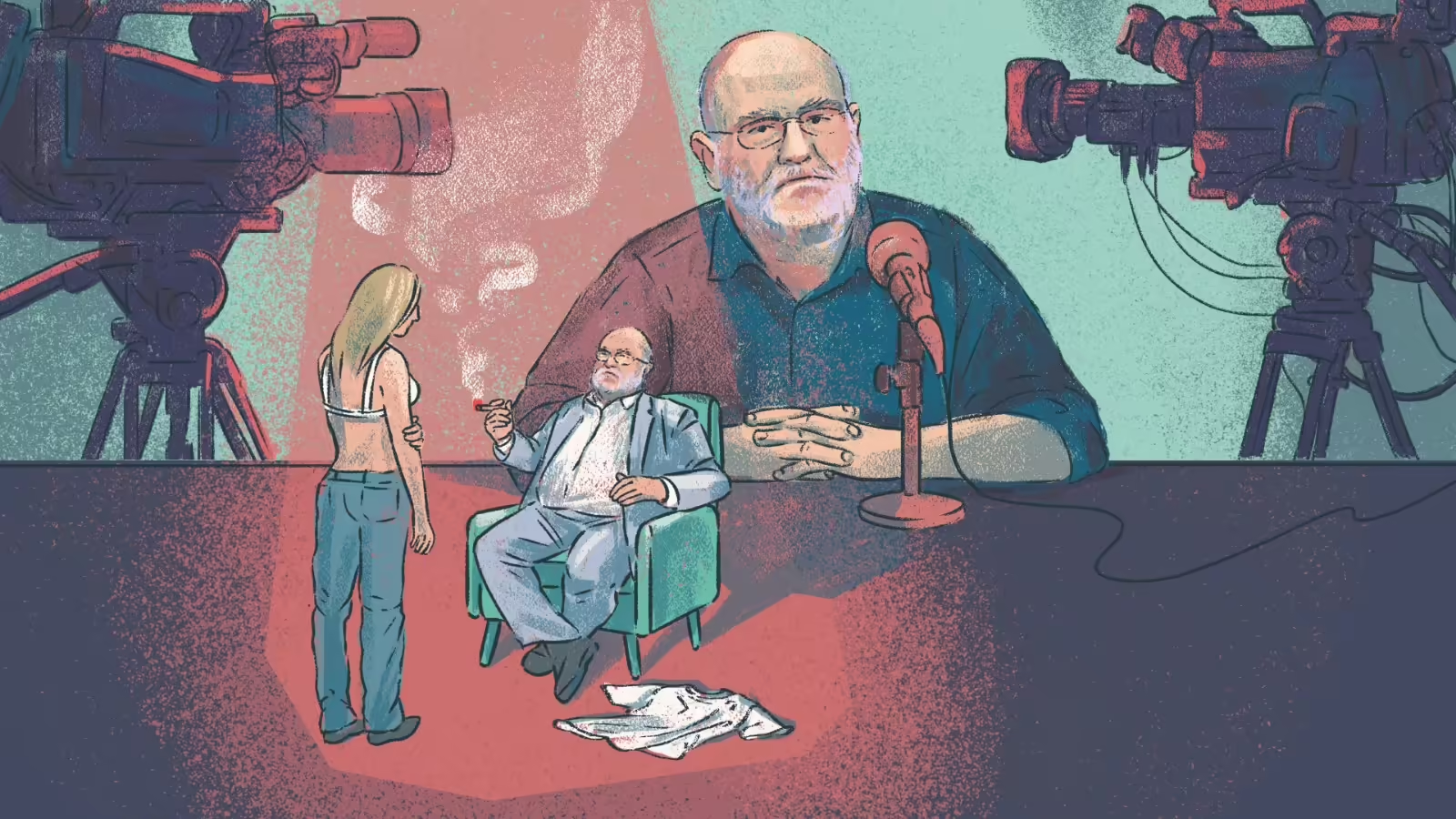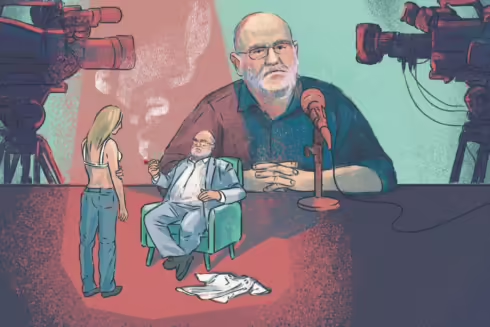- He was also vice-dean and Secretary of State. Alfred Bulai appears regularly in the media and is known as “one of the best sociologists in Romania.”
- He invites female students to cafés to discuss their performance in class, but asks them questions about their sex lives. He lectures them for up to four hours about how women should behave so that men “can feel powerful.“
- According to Bulai’s statements to the girls , female students must be “sexilicious“ and have the courage to “expose their bodies“. He criticizes them if they don’t. And, at key moments, he provokes them. “If I tell you to take your clothes off, will you take them off?“ the professor can be heard saying on a recording obtained by Snoop.
- Bulai has been perfecting his technique for almost three decades. Female students who do not know each other report almost identical abuses committed years apart.
*Some of the people we spoke to wished to remain anonymous.
- The professor tries until he succeeds. He gropes some female students or tries to kiss them, and ends up having sex with others. According to recordings and testimonies, he makes them feel guilty for what is happening. “He told me that I was the one seducing him,“ one of the victims reports.
- “The teachers know,“ “the students know,“ “it’s not something you can’t see,“ say some of the more than 18 witnesses and victims from different generations with whom Snoop spoke.
- “This is the first time I’ve heard about this, and I assure you that SNSPA will act according to the law, without hesitation. Such things are not acceptable in an educational institution,“ says Rector Remus Pricopie, contacted by Snoop.
- Alfred Bulai denies the allegations. “I have no idea about this matter. She certainly did not undress. There is no such requirement.“ He refuses a video interview.
“I was shaking while undressing“
“I was shaking while undressing “ Alexandra Costa, a former student at SNSPA, recounts tearfully how she ended up taking off her clothes in front of her sociology professor, Alfred Bulai, in the summer of 2014.
She was 19 years old and had come to Bucharest from Bechet town, in Dolj County. Bulai was 51 years old and was then the vice-dean of the Faculty of Political Science.
It happened at the end of the internship that the professor organizes almost every year with first and second-year sociology students in a rural area. They learn to administer questionnaires and conduct interviews with locals. At the end, Bulai gives them individual feedback in his room.
“It should happen in a private place,“ Bulai explains in his conversation with Snoop.
For his meeting with Alexandra, the professor had laid the groundwork in a previous discussion, in which he had insisted on her “flaws,“ on “the fact that I was not self-confident enough and needed to work on that,“ she says. Then, in his room, he asks her:
“Are you more confident now? (…) I want to see that you’re self-confident enough to undress,“ recounts the former student.
“I took off my clothes and he said, ‘Your panties too.’“
Meanwhile, the teacher compliments her: “You have very nice tits, girl,“ she says.
Then “he told me to come to him (…) I had never stood naked in front of anyone before. And he said, ‘Look how sexy you are, how can you not be self-confident?’ And he put his hand on my breasts (…) and on my butt. (…) I was shaking, I couldn’t think straight,“ she recalls.
The professor allowed her to get dressed.
When contacted by Snoop, Bulai denies ever asking a student to undress during these individual meetings.
Two hours after the abuse, the victim has her first outburst of anger when a colleague asks her for a pen. “I had a panic attack, and many more followed. That’s how the hyperventilation, the crying, and the stress started,“ Alexandra recounts.
Panic attacks are common after abuse, psychologist Bogdan Morar explains: “They appear as a response to the suffered trauma, they are the body’s reaction to extreme stress.“
In the evening, the teacher praises her in front of her classmates. “He said to me: ‘Exceptional, extraordinary, the best project (in the internship) (…) you are the best, you are a princess, you are perfect,’“ Alexandra recalls.
The next day she leaves for Bucharest. But it doesn’t end there.
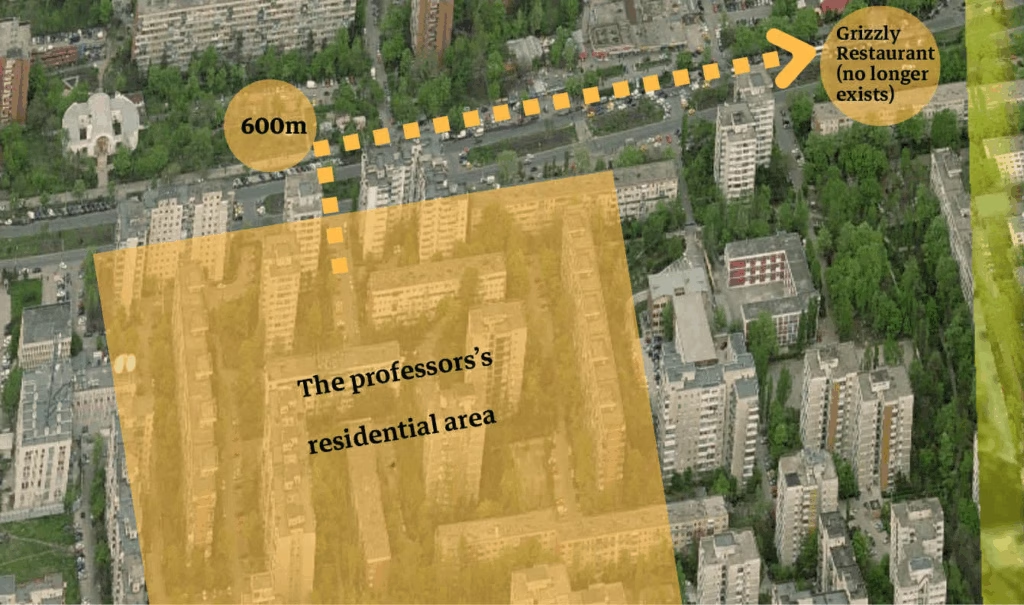
Bulai asks her to call him, and they meet twice more in the summer of 2014, “to talk about the next steps in my career,“ Alexandra recounts. Once, they meet at a terrace near his apartment. The two-hour conversation digresses into “awkward, degrading, humiliating“ territory, she recalls.
“’How many men have you slept with, how much experience do you have?’ Do I like him? Would I sleep with him? ‘Will you come with me to the mountains? Will you come to my place? Look, I live there’,“ he says, pointing to a floor in a block of flats, the former student recounts.
“Not now,“ Alexandra replies.
She is terrified: “I thought there was no way out (…), that I would never have a career.“
Now, when she remembers that moment and sees the “child“ on the terrace through her adult eyes, she wants to shout, “Call the police, please!“
The teacher confirms in a discussion with Snoop that he often meets students outside of a formal setting, “usually for coffee. Especially when no one is at the school. We talk about their degrees, things like that. I never invited anyone to my house.“
Alfred Bulai’s behavior could be classified as criminal abuse of office for sexual purposes, according to Vladimir Ignat, a lawyer with the ANAIS association. (click for details)
Article 229, Criminal Code, Abuse of office for sexual purposes: The solicitation or obtaining of sexual favors by a public official who invokes or takes advantage of a situation of authority or superiority over the victim, arising from the office held, shall be punishable by imprisonment from 3 months to 2 years or by a fine, as well as by the prohibition of exercising the right to hold public office or to practice the profession or activity in the exercise of which the act was committed.”
“I disappeared“

When school starts, Alexandra is already a different person. “She became more isolated (…) She was very affected—downright shaken,“ says Adriana*, a former classmate. Later, the relationship between her and Alexandra cooled. “I witnessed her tantrums. (…) They always ended with (…) ‘You don’t know what I’m going through,’“ she recalls.
In college, Bulai invites Alexandra to take the professors’ elevator with him, just the two of them. He says to her, “Wow, you’ve become so sexy,“ then offers her an unpaid job in Călin Popescu Tăriceanu’s presidential campaign, she recalls. “He presented the situation to me as if he was doing me a big favor“, the former student explains. She agrees to do the job, but doesn’t deliver anything.
The panic attacks become more and more frequent: “Sometimes I couldn’t breathe.“
From a student engaged in the academic life, “she falls into the other extreme; she’s not interested in anything anymore,“ her mother recalls.
In her third year, she becomes depressed.
“I couldn’t leave the dorm for days, weeks (…) couldn’t get out of bed. (…) have plans, dreams. (…) I wasn’t myself anymore. I didn’t understand why.“ The memories make her voice tremble and fill her eyes with tears.
Victims do not always realize the cause of panic attacks, psychologist Bogdan Morar says. Dissociation, a psychological survival mechanism, separates trauma from intense emotions. Thus, panic attacks can be triggered by seemingly insignificant factors that remind the subconscious of the initial trauma.
Alexandra stops going to college. She doesn’t graduate that year.
“I was very ashamed. (…) I was shaking so much when I walked through the college doors,“ she recalls. Her classmates were shocked that she didn’t graduate. “(In class) she was the girl who had the answer to every question, knew everything, learned everything,“ says Adriana*.
Alexandra leaves the country. “I preferred to be far away than to be alone with my thoughts,“ she explains the reason for her disappearance.
She works in bars in England and in a hotel “in the middle of nowhere“ in Scotland. There, she is diagnosed with post-traumatic stress disorder (PTSD). She undergoes medication and therapy for her ongoing panic attacks.
PTSD occurs in 30-50% of abuse victims, says psychologist Bogdan Morar. It manifests itself through re-experiencing the trauma (flashbacks, nightmares), avoidance of memories of the abuse, and negative changes in thinking and mood (anxiety, depression, anger).
She tells her mother what she went through only after seven years have passed: “I was shocked (…) He could have been her father, maybe even her grandfather,“ says her parent.
Her daughter graduates online, five years later, in 2021, while a friend holds her hand. Alfred Bulai is on the exam committee.
“I realize now that I was a child then. And that what happened to me was not legal, nor moral,“ Alexandra emphasizes, ten years after the abuse.
SUSȚINE JURNALISMUL FĂRĂ LESĂ
Tăriceanu’s man
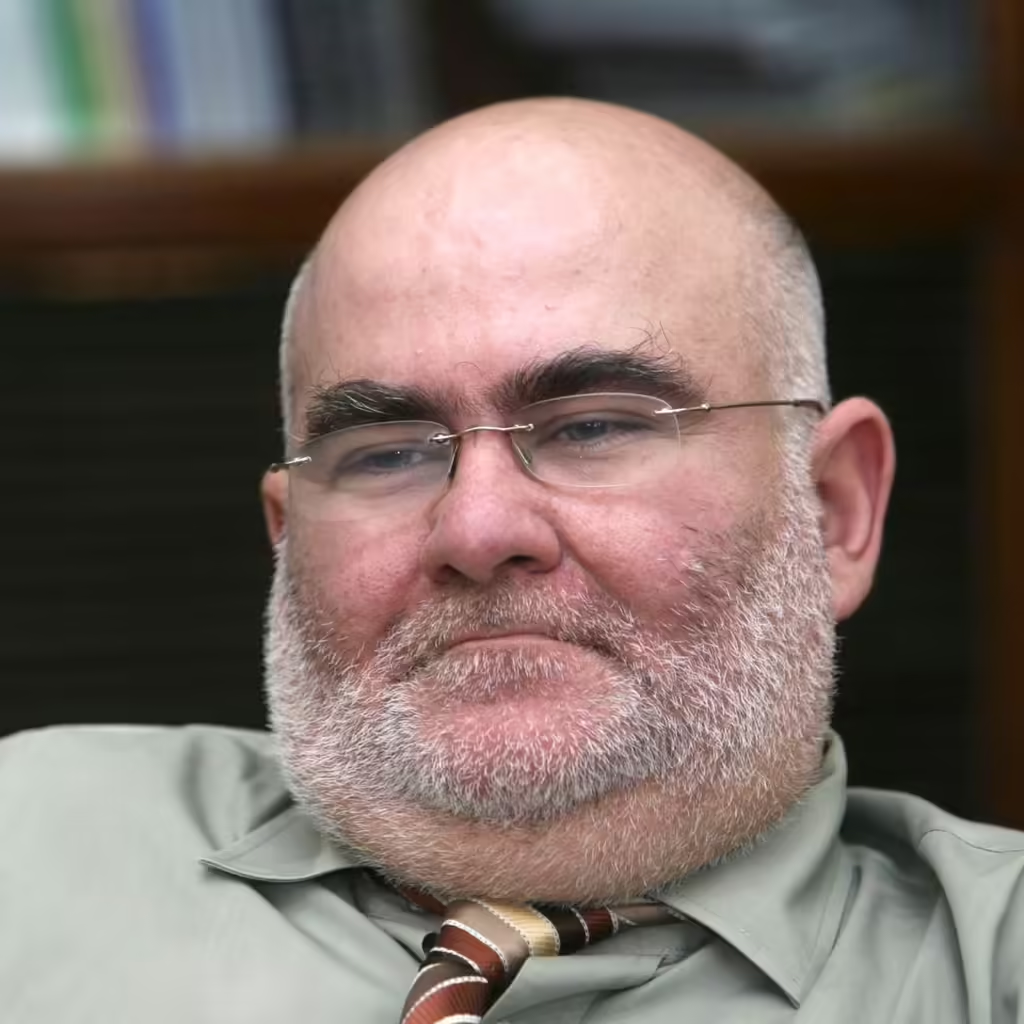
Starting in 2001, Alfred Bulai (now 61) served as vice dean of the Faculty of Political Science at SNSPA for 14 years, with a brief break between 2006 and 2008, during Călin Popescu Tăriceanu’s administration. He was then appointed president of the Agency for Government Strategies (ASG), a position ranked as Secretary of State.
The press at the time wrote that from this position he used public money to promote the National Liberal Party (PNL), printing four million flyers at inflated prices, which endorsed EU integration using a photo of Tăriceanu. During this time, Bulai offered “free“ “minor advisory services“ to the party, as he called them in the press.
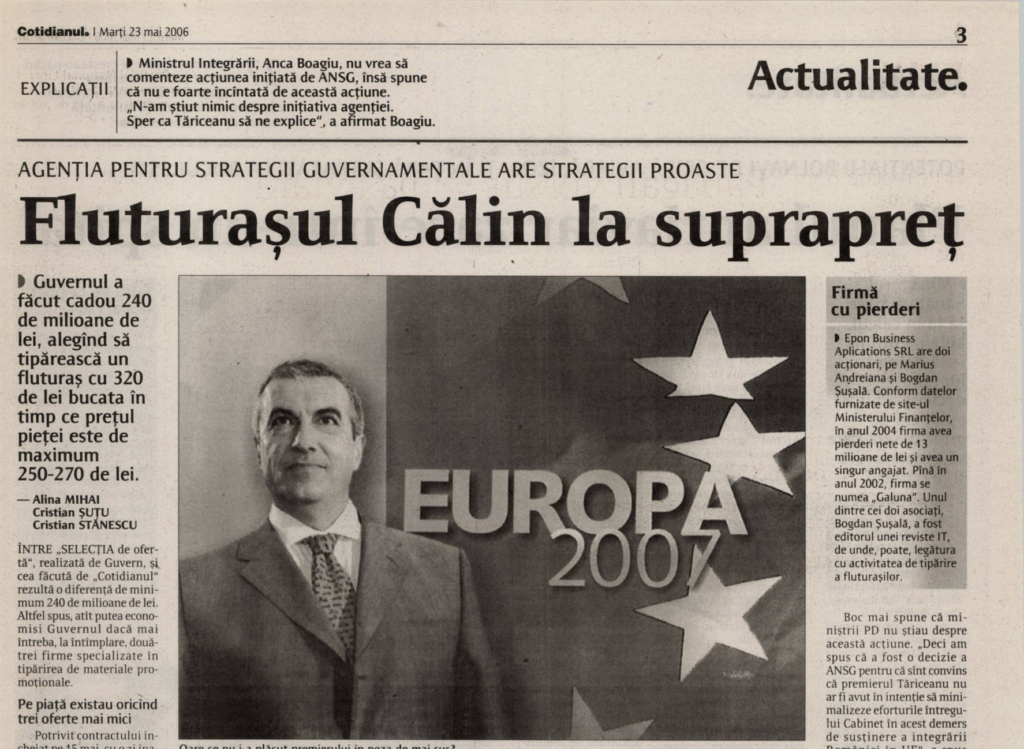
As president of ASG, Bulai also worked to clean up the image of his compatriots living abroad.. Following a scandal sparked by a Romanian man who had raped a student in Italy, ASG allocated 15.5 million lei for a campaign to counter negative perceptions through success stories. It was also carried out in Spain, at a cost of 12.1 million lei, but the successful Romanians featured in the videos were ultimately replaced by actors.
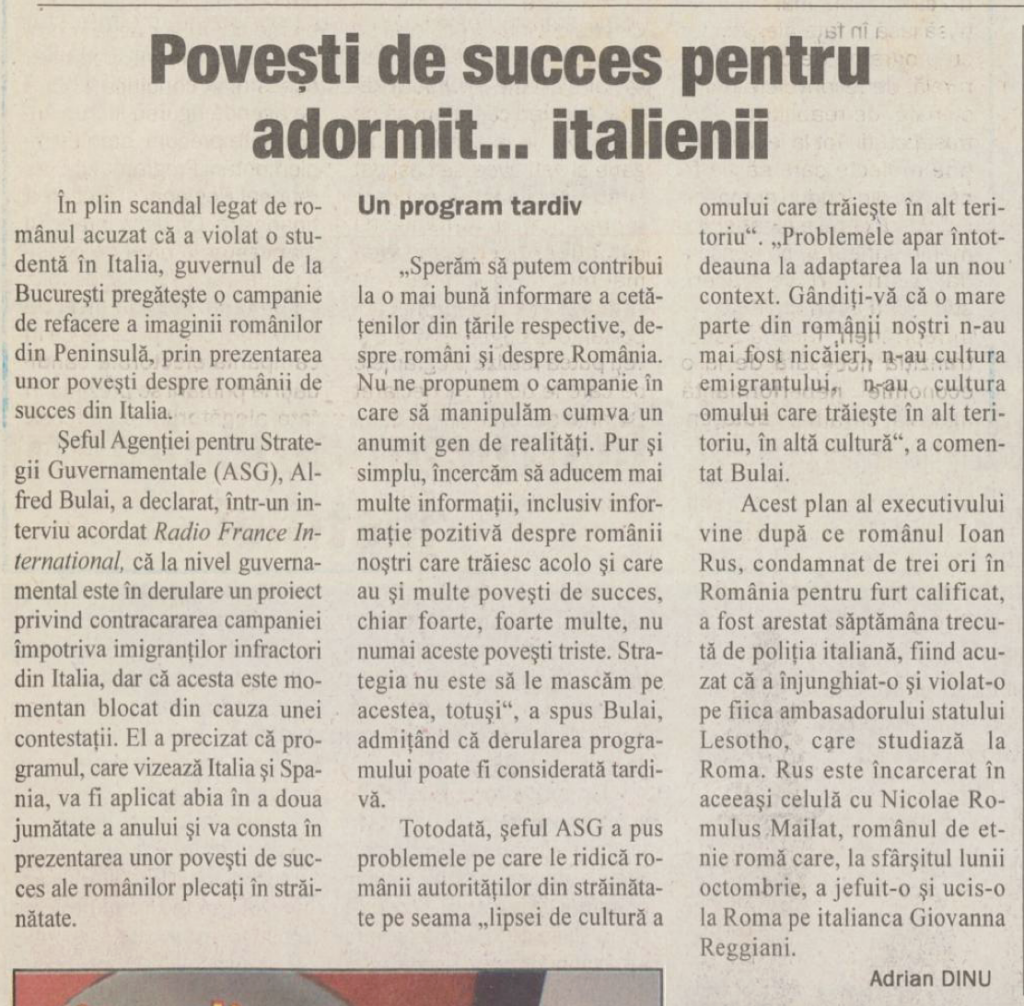

In 2009, Alfred Bulai was awarded by the National Alliance of Student Organizations in Romania (ANOSR) at the Bologna Teachers’ Gala, which aimed to “reward the quality of Romanian university professors as teachers and mentors.“
In 2016, he was appointed by the Social Democratic Party (PSD) as a member of the Management Board of Romanian National Television, a position he held for a year and six months. In the same year, he became the head of the Sociology Department, a position he still holds today. In this capacity alone, he earned over one million lei from SNSPA by 2022, according to his financial disclosures.
Over the years, he has coordinated projects for the World Bank and the University of Bucharest. He is the author or co-author of numerous sociology books, including an 11th grade textbook.
For almost two decades, he has been expressing his opinions on television, in the press, and on YouTube shows, as an authority in his field. He comments on elections, political games, and government measures, but also on highways, videochat and vegetarian hot dogs.
His television appearances have contributed to his fame at the faculty, both among students and their parents, who reinforced the young people’s trust in their professor. “The fact that my mother liked him and always talked about him had a huge influence on me: she said he appeared on TV, that he was smart“, says one of his victims.
In 1996, the professor received his PhD in sociology from the University of Bucharest. During that time, while he was teaching, he began a relationship with his student and future wife, Ana Bulai. Together, they founded, in 2002, a market research company, AB Research Group (now AB European Research Group).
Starting from 2008, the company received over three million lei from the state for various research projects, surveys, and studies. Some of the largest sums were granted by the National Agency for Equal Opportunities for Women and Men (ANES), the Ministry of Education, and the Romanian Agency for Quality Assurance in Higher Education (ARACIS).
In 2017, the year in which AB Research won the most tenders (18, instead of a maximum of six in previous years), it was said on the market that the company was practicing predatory pricing, which raised questions about the results of the research, which, due to lack of funds, could not have been carried out properly, according to Snoop sources.
The professor co-opted students from his class into the company’s projects, paying them either under the table or through collaboration contracts, at a rate of 8–10 lei (maximum 2 euros) for administering an extensive questionnaire, several former students said.
“The network of (questionnaire) operators was basically a network of students,” said one of them, who worked for the company. Meanwhile, the professor’s firm was cashing in tens of thousands of euros. The turnover for 2023 is nearly 1.2 million lei (approximately 245,000 euros).
But AB Research also earned money from political parties, ALDE and especially PNL, money that was also channelled through the Institute for Liberal Policies.
In 2014, it also conducted polls for Călin Popescu Tăriceanu’s election campaign, in which former students say they were invited to work for free.
Alfred Bulai divorced Ana Bulai in the 2010s. He left the company last year.
”The cult of Bulai”
Sociologist Alfred Bulai has always been popular among students. Those who had him as a professor between 1995 and 1999, while he was doing his PhD at the University of Bucharest, say that he “had a talent for getting close “ “did really cool activities,“ “was pleasant because he had a sense of irony,“ and “wasn’t strict “
There was a perception ”that he was one of the best sociologists in Romania,“ says Cristina Suliman, his student between 2021 and 2024. “In the early years, we were fascinated. He was the head teacher, he gave us access to resources,“ says Victoria*, one of Bulai’s students between 2008 and 2011.
At the same time, “he was always grumpy or serious or angry, and you had to make sure“ you didn’t upset him, explains Mirela*, his student between 2009 and 2012.
He thus managed to attract students who “wanted to please him. It was kind of a cult of Bulai. A power game,“ she emphasizes. “We constantly competed for his attention,“ says Victoria*. “You saw him on TV and you wanted to impress him,“ adds Adriana*, his student between 2013 and 2016.
The classrooms were always full. The classes lasted four or five hours without a break, until 10 p.m., covered in the smoke of the professor’s cigars. Sometimes he would have verbal missteps about women or gender issues, which caused some students to leave the room.
“Breasts and bras are status indicators,“ “men validate women because (…) they are beautiful,“ “the young women are the most attractive,“ “When women say no, they actually mean yes,“ “purple is the color of homosexuals and of women of questionable morality,“ “the cause of lesbianism is the maternal instinct,“ say several former and current students with whom Snoop spoke.
The professor’s remarks are also problematic because sociology “promotes understanding and acceptance of diversity, (…) inclusion,“ explains Elena Trifan, PhD in sociology, associate professor at SNSPA and former student of Alfred Bulai between 2008 and 2011. (click for details)
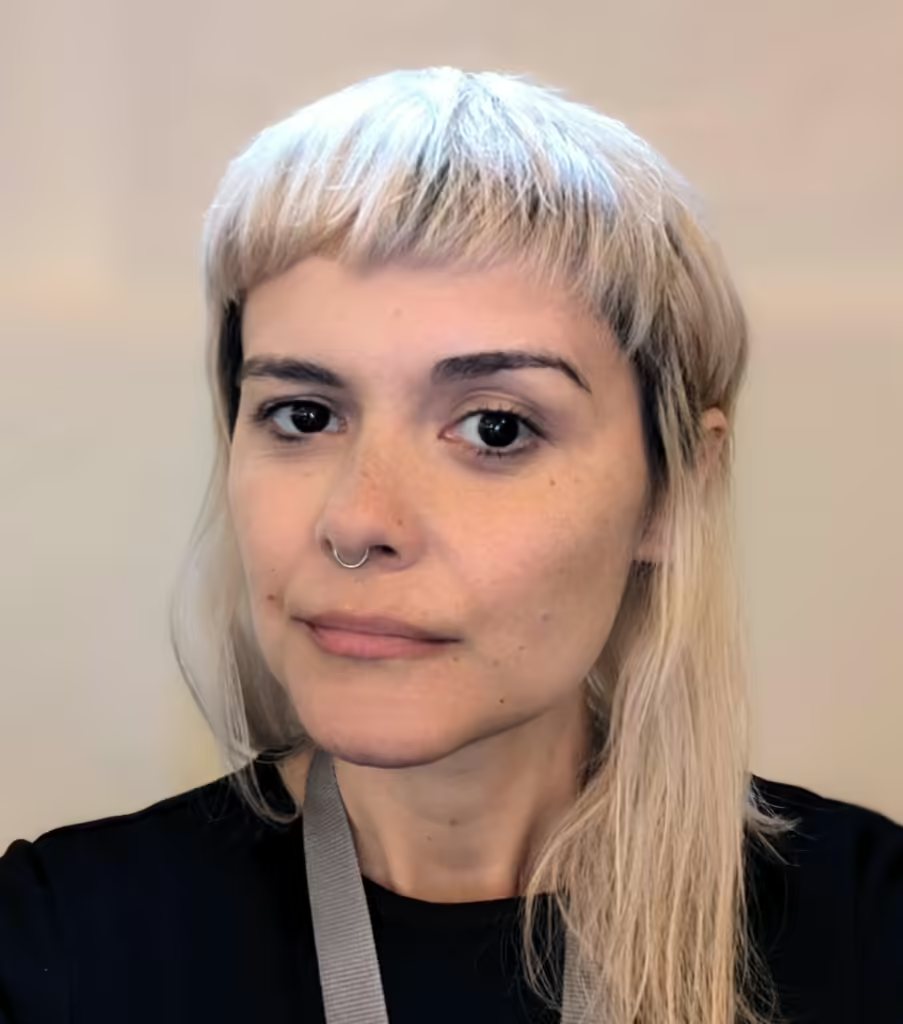
However, the professor also promotes misogynistic and homophobic theories in the course material, ”Fundamental Concepts in Sociology”. He claims that homosexuality reflects ‘a certain “pathological” character.’
But, he clarifies for Snoop, ‘from a social point of view, it is not a disease.’
The course further states that ‘incest norms (…) concern prohibiting access to certain women within the community.’
And he explains for Snoop: ‘That is, certain women were no longer considered sexual partners because prohibitions existed in this regard. (…) Human society emerged at the moment when these norms were established.’
The language “stigmatizes LGBTQ+ people, reinforces negative stereotypes, and contributes to social exclusion”, says Trifan. She emphasizes that incest norms are “complex social constructs,” and that the reasons for their existence are linked to “genetics, social order, and moral beliefs.”
Public humiliation
The professor boasted in class that he was “good at manipulating people,“ says Iulia*, one of Bulai’s students in the 1990s. “He always pushed our limits. (…) He liked to put you in situations where you felt cornered and had no way out,“ says Victoria*.
She remembers that during a seminar on social conformity, the professor provoked a boy in her class to touch her breast, through suggestion and social pressure. “He said, ‘If I tell him (the classmate) to put his hand on Victoria’s* breast, he won’t do it’ (…) And what did he do? He put his hand on my breast,“ says the former student.
“Public humiliation“ was an important part of these mind games, she adds.
The SNSPA Charter on insulting behaviour
“SNSPA does not tolerate insulting behaviour, namely acts of abusive, intimidating, or humiliating expression directed against participants in university activities, regardless of who they are. Such acts, directed against subordinates, constitute a form of abuse of power. Repeating such behaviour towards the same person or group may become a form of harassment.“
“Victoria* left the classroom crying,“ recalls Elena Trifan, who was present in the room at the time as a student. However, neither the teacher nor the students reacted in any way. “No one went any further [to complain to the management]. I don’t think we would have had the courage to do so (…) at the time,“ recalls Andrei*.
Victoria* perceived the incident as a punishment for having rejected the professor’s sexual advances some time before.
“HE TRIED TO KISS ME“
Under the pretext of academic feedback on seminar topics, Bulai repeatedly invites Victoria* to his dean office.
“He told me I should be sexier (…), that my sexiness was an asset and I shouldn’t hide it,“ she says. When she dresses to his liking, he mimes whistling, she recalls. “He asked me about my relationship with my boyfriend (…). He tried to kiss me. (…) He invited me to his house,“ says Victoria*.
She was 20 years old. The vice-dean was almost 50.
Contacted by Snoop, Alfred Bulai denies that he tried to kiss any female student in his office, which was not “truly private.“ “It was also the associate dean’s office at the time. There were other people who had the keys,“ he says.
Shocked, Victoria* no longer attends any face-to-face meetings with him. She tries hard to be “invisible“ in class, but he always spots her. So she misses a lot of classes.
Homework: erotic pictures and love letters
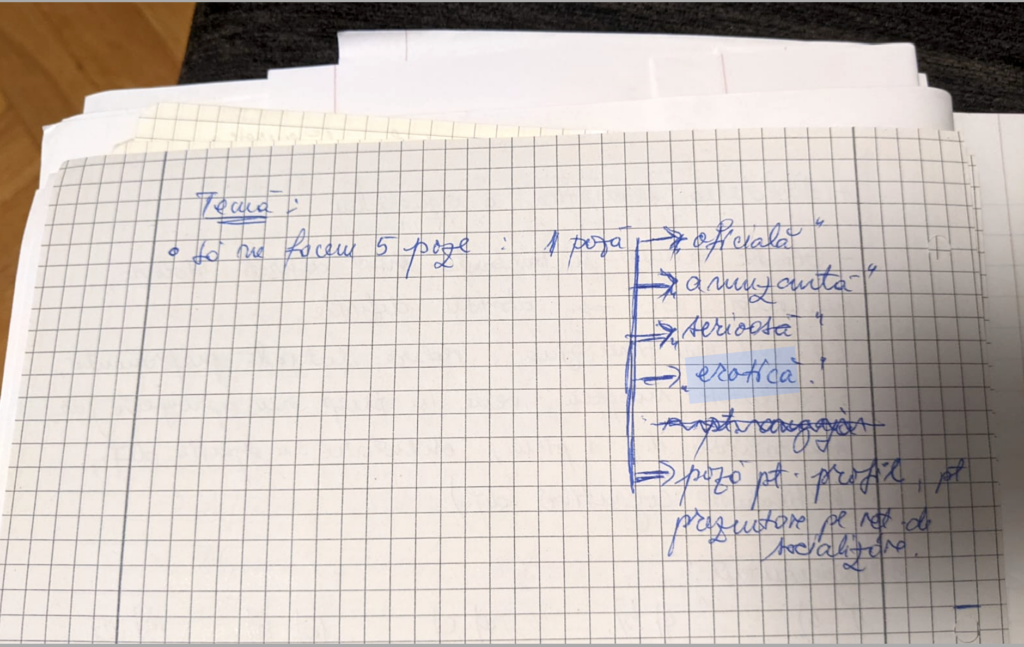
“Why rape should not be punished“ is the topic that Elena Trifan, Bulai’s student between 2008 and 2011, is given in the “Social Communication“ course taught by the sociologist.
In another class, “Social Experiment,“ “he made us take pictures of ourselves,“ and the boys had to “rate the girls for attractiveness,“ recalls the current teacher about her student days. Another time, some female classmates pose in bras and panties for a project that measures attractiveness, she says.
“He was talking about my classmates. He was comparing them to each other,“ Victoria* recalls of her private discussions with the professor.
When asked by Snoop how do such topics help students, Alfred Bulai says that “it’s a kind of self-reporting on how they see each other.“
The course on “Image Sociology“ is also an opportunity for the professor to weigh up which of the students best fit his mold.
Aurora Sandu, a master’s student between 2013 and 2015, recounts that Bulai asked the female students to come to class dressed in a way that showed their femininity. She chose to wear heels and a tight dress. The professor praised her in front of the class, saying that she had “grown up, matured, and is now a woman“ and feminine, unlike her more modestly dressed classmates, she recounts.
She did not expect this, she thought that the outfit “had a purpose for the class I was attending,“ Aurora says, emphasizing the trust that a student places in their teacher.
Alfred Bulai does not “remember things like that now. Even if they happened, they happened 20 years ago. But the fact that we were discussing clothing or the body was a matter of body sociology,“ he explains to Snoop.
Two years later, Ioana Pelehatăi, then a master’s student, recalls how the professor told the students to take five photos of themselves in various poses, including an erotic one. Bulai “picked apart“ the photos, “encouraging public participation“ from the 40 students.
- “If he wasn’t insinuating something nasty about a person’s physical appearance, he would criticize the aesthetics of the photo (…) ‘You’re too shy, you need to show more,’“ recalls Ioana.
- “There were girls in bras, completely exposed, and he would make fun of them: ‘Is this what you perceive as erotic?’“ says Victoria*, who was given the same assignment between 2011 and 2013.
Because the course “was a waste of time and a mockery in every way,“ Ioana dropped out of her master’s program. She resumed three years later, after making sure she wouldn’t have any classes with Alfred Bulai.
“The erotic images did not refer to them (the students), but to the construction of an image that was erotic. It was about image culture. There was never any image with sexual connotations,“ says the professor, questioned by Snoop on the subject.
More recently, Bulai’s assignments have become even more daring. Sofia*, his student until this year, says that in the “Public Sociology and Social Counseling“ course, they had to “write about their ideal boyfriend,“ which had nothing to do with the subject they were studying.
When asked how was this topic related to what he was teaching in class, Alfred Bulai explained that the assignments “are related to how (students) see different things. (…) That’s what public sociology is, being able to explain certain topics to the general public.“
Teodora Batâr recounts that the professor urged her to send him “a conversation between you and your tits.“
“I don’t remember ever saying anything like that in my life,“ Alfred Bulai responded when contacted by Snoop.
Another time, he asked her if she wanted to write him a love letter, she says.
“It’s a way of getting to know yourself, of setting boundaries,“ Bulai explained during a private meeting on a terrace which was recorded and came into Snoop’s possession. On the phone, however, he denied that the letters were addressed to him.
Plum brandy, striptease, and lap dancing
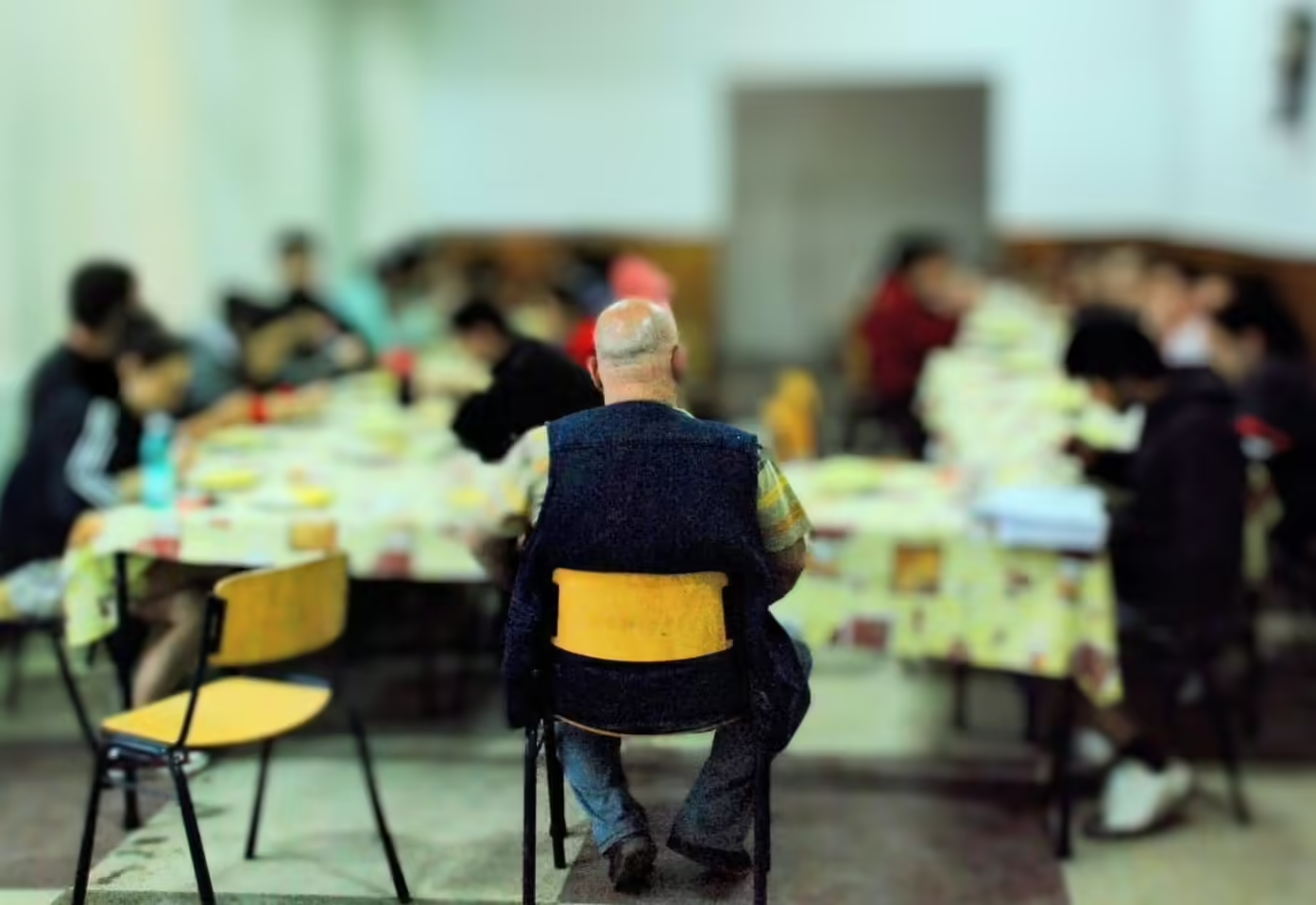
The internships organized by Bulai every summer are “very popular at the university. Everyone wanted to participate,“ says Adriana*, his student between 2013 and 2016. Especially because you get to leave Bucharest, but also because you only get there after an interview with the professor. “You became cool simply because he had chosen you. (…) It made you feel more important,“ she explains.
Snoop spoke to 15 former and current students about the internships. They all describe them as “somewhere between the army and a camp.“
They wake up at seven in the morning. The students are responsible for cleaning and cooking. He never likes the food. Sometimes the students are scolded by the assistant if the professor is not served first. During the day, they go out into the heat, without water or food. They are only allowed to return to their accommodation in the evening. Then the meetings with the professor begin, lasting late into the night.
“She called me in a panic (from the internship), saying she couldn’t cope. She said she had a meeting with a professor at 1 a.m., which shocked me,“ says Alexandra Costa’s mother, a former high school teacher who is now retired.
The evenings continue with psychological games and projective personality tests proposed by professor Bulai. Often intrusive, they also involve interpreting aspects of the students’ sex lives.
Most students remember a test in which they had to imagine a snake and their reaction to it. Later, they learned that this represented their reaction to a penis. At the opposite end of the spectrum, a cave represented a vagina. vagin.
Student’s internship notes about the meanings of the things she drew, including “snake = male sex” and “cave = female sex.”
“He told me I was a sassy bitch,“ Sofia* recalls of the 2022 internship. He also made assumptions about Alexandra that “led my colleagues to believe I was a virgin.“ “It’s very hurtful to hear that about yourself in front of other people,“ she recalls how she felt at the time.
“Someone could easily leave feeling really depressed after two or three evenings with situations like that,“ says Andrei*, who participated in the 2009 internship.
Alfred Bulai, however, argues that it is “a simple exercise in which people answer questions“ to build “group cohesion“ and without “any psychoanalytical dimension.“ And that the students were the ones who interpreted the results. He has “never“ made any “unpleasant“ remarks and “apologises immediately if such a situation arises.“
“It’s just a test, what’s the problem?“ he asks, astonished.
“Projective tests require years of professional training to interpret,” explains psychologist Bogdan Morar. He emphasizes that those used by Bulai “are no more valuable than a horoscope.“
Nevertheless, 19-20-year-old students “can be manipulated or traumatized by such practices, especially if they come from an authority figure.“ This “can lead to stigmatization, confusion, anxiety, and damaged self-esteem,“ says the psychologist.
Such tests must be conducted in a psychotherapist’s office, with the informed consent of the person being evaluated.
Bulai himself participates in some of the games. “He asked his female assistant to choose three people from the table with whom she would have sex, although we were all her students,“ recalls Teodora, and colleagues who were present during the internship confirm this.

Another game involves students creating a story together. Each student continues the previous sentence. “Until we got to Bulai, who said (…) (without) any connection to the rest of the story, that Teodora (Batâr) and I were naked and fighting with pillows in a madhouse,“ recalls Cristina Suliman, a student between 2021 and 2024. “He created this image of us,“ Teodora points out.
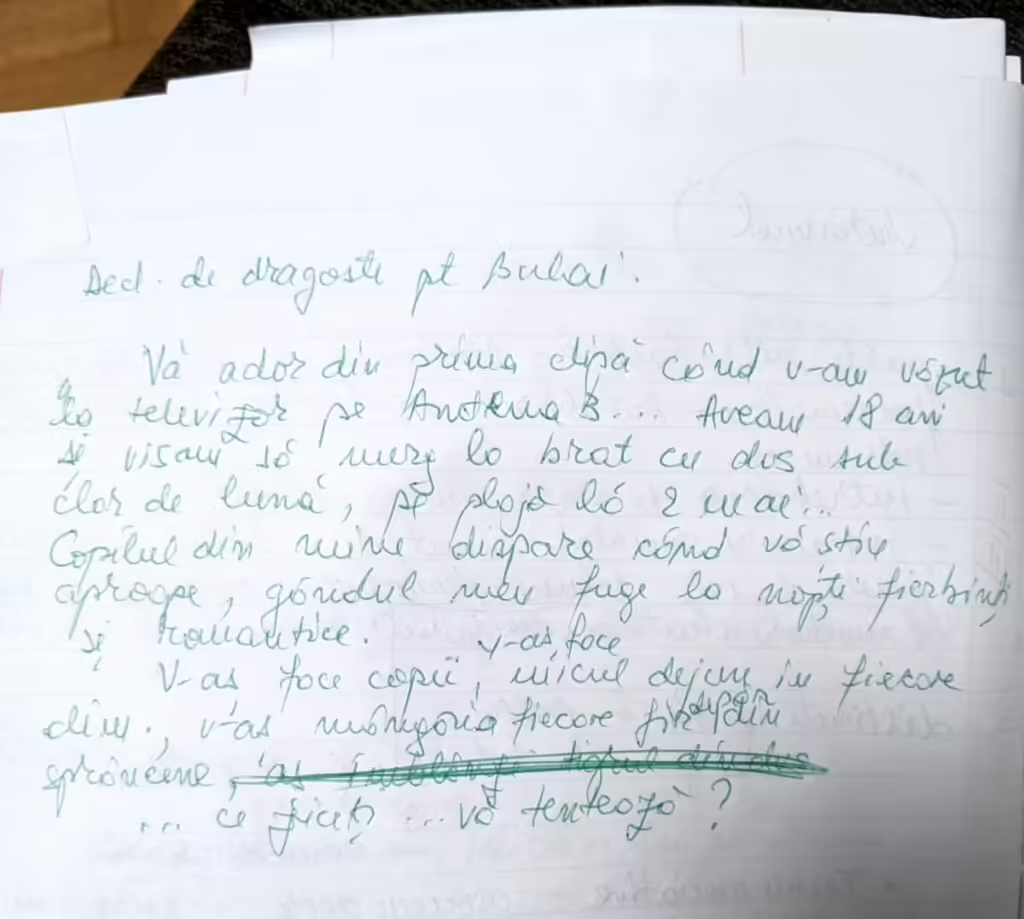
It writes: ”I adored you from the very first moment I saw you on TV, on Antena 3… I was 18 and dreamed of walking arm in arm with you, under the moonlight, on the beach at 2 Mai. The child in me disappears when I know you’re near; my mind drifts to hot, romantic nights. I would have your children, make you breakfast every morning, caress each hair of your eyebrows… So, what do you say… are you tempted?
They also perform theater. Sometimes the teacher assigns the theme: “He had two female classmates flirt with each other,“ Teodora Urse recounts about the internship in 2023. “A classmate and I were asked to act out a sexual act during which I was impotent and had to apologize to her for that,“ Dan* says about the same internship. He also remembers a game in which Alfred Bulai “was the head of a prison and we had to decide who would have sex with the guards, who would cut off their own genitals, who would have homosexual relationships.“
“There’s nothing absurd about it. It’s a framework situation and everyone builds it however they want,“ says the teacher, when questioned by Snoop.
Often, alcohol is consumed during internships. The professor buys some of the students a beer during the day. In the evening, he sometimes brings a bottle of whiskey with him, which he occasionally shares with others, according to former students. Other times, a bottle of plum brandy appears on the table, “from the people in the village.“
“How should I know who received what?“ says Bulai.
Mirela* is “completely drunk“ when she gives a lap dance to a colleague during the 2010 internship. “I don’t think I should have done it in front of everyone, let alone in front of my teacher,“ she recalls.
In the same internship, Ilinca* and Aurora each perform a striptease dance in tights and bras in front of everyone. The latter dances “blindfolded“ after drinking some plum brandy “to get up the courage“. “When it was done, I was shaking all over,“ she emphasizes.
“I’m embarrassed about that moment. (…) I didn’t want to do it and I don’t know how I ended up doing it,“ says Ilinca*.
“That’s not true,“ says Alfred Bulai. Although he claims that no boy or girl has ever performed a striptease in his internships, he admits that, on the last night, “they compete in different activities they come up with themselves. It’s just for entertainment,“ he says.
The challenges are formulated by the students and picked by drawing lots. Although the teacher eliminates some of the challenges that he doesn’t like, all the girls mention that Bulai never prevents such deviations. “These are relatively trivial things that exist in the academic environment all around the world,“ Bulai explains.
Many of these “games“ are filmed by a camera on a tripod, according to several former students. Bulai confirms: “I record the sessions and some special moments.“ “He told us he was filming and taking pictures for his personal archive,“ Dan* recalls.
The professor does not ask for their consent: “You couldn’t really say in advance that you would leave or that you didn’t want” to be filmed, recalls Andrei*, a student between 2008 and 2011. Bulai, however, argues that consent was alleged, given that “the camera is obvious, everyone would see it.“
The footage never reaches the students, and none of those with whom Snoop spoke to know what happened to it or what its purpose was. “They’re in an archive that’s simply mine,“ Bulai tells Snoop.
“If I asked you to take your clothes off right now, would you do it?“
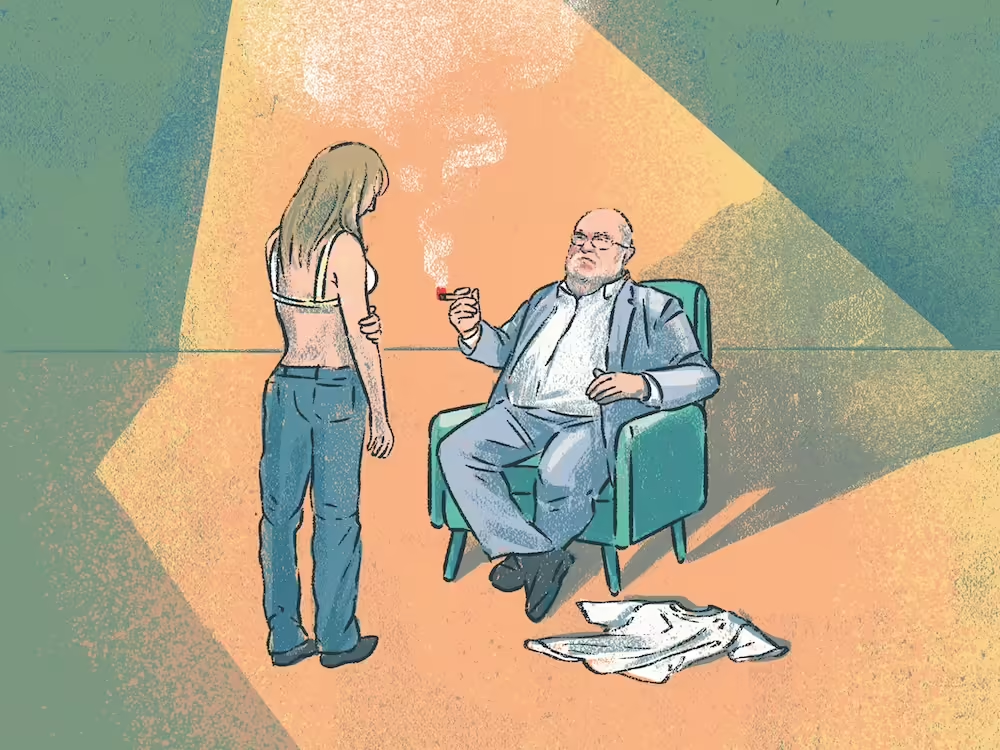
“I slept a maximum of three hours every night for ten days in a row (…). (The teacher) told me that he chose to tire us out because it’s then that people (…) lose their inhibitions and are more receptive,“ recalls Teodora Batâr, about her internship in 2022.
“We were exhausted and cried very easily,“ says Aurora Sandu about her internship in 2010.
Lack of sleep can impair memory, concentration, academic and professional performance, explains psychologist Bogdan Morar. It increases the risk of anxiety, depression, and irritability. Coordination becomes poor and reaction times slower.
This is the state Teodora is in when she goes to her final internship meeting in the teacher’s office:
“He started off by telling me I was stupid, that I was just a sex object, (…) that I wasn’t sexilicious (…) Some of the most horrible things I ever heard in my life.“ Then she says he asked her: “If I asked you to take your clothes off right now, would you do it?“
She was 19. He was 59.
She agreed: “I thought it was a rhetorical question (…) I didn’t want to upset him (…) I was overwhelmed by fear. (…) It was a kind of defense mechanism,“ she explains.
“In the context of abuse of authority, victims may feel that the only option to minimize the danger is to comply,“ explains psychologist Bogdan Morar, emphasizing that “it is an unconscious reaction.“
Teodora remains just in her bra for two seconds, then gets dressed.
“And he laughed and said, ‘You tricked me, I’ve seen more at the beach.’“ Then he compliments her: “Congratulations, you impressed me. (…) A woman is most feminine when she is naked,“ she recalls. Her classmate, Sofia*, notices how self-conscious Teodora acts after the meeting and finds out what she went through: “I didn’t expect this to happen with everyone there.“
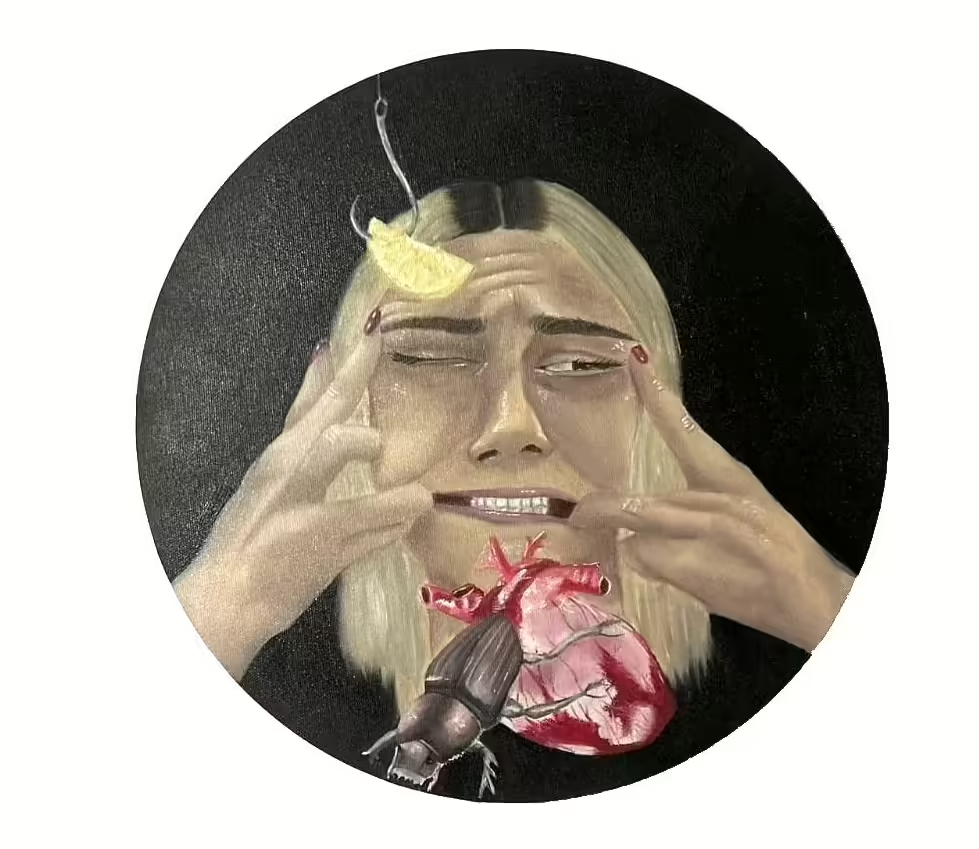
Teodora only realizes what happened to her back in Bucharest, when she tells her story to some friends and they start crying.
For a year, dreams about Bulai in the internship wake her up every night. “She had nightmares and trouble sleeping alone,“ says Teodora’s dad, who recently found out what his daughter has been going through, as she had shut herself off from the world.
Things weren’t any better during the day. “I didn’t know who I was anymore. His voice haunted all my thoughts, I ended up saying bad things to myself. (…) He ruined at least a year of my life, maybe even my whole life,“ Teodora says, two years later.
That’s how she ended up in therapy: “I knew I would have to go to his classes again and that I couldn’t look him in the eye without feeling like I was dying inside.“
“You must be beaten“
Like he did with Alexandra Costa and Victoria*, at the beginning of the new school semester, the teacher invites Teodora to the terrace, under the excuse that he was supposed to give her feedback. Either near his house or somewhere near the university, from where he picks her up and brings her back to, by car. Sometimes he gets behind the wheel after drinking alcohol, she says.
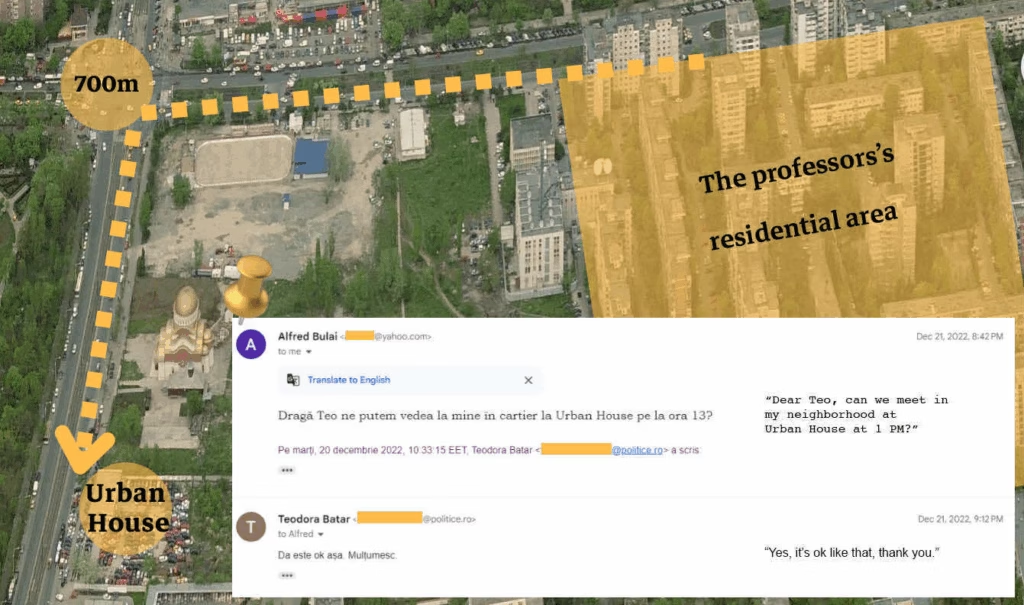
The discussions last up to four hours, during which he is the only one talking “about love, sex, relationships. He asked what my ideal man looked like, (…) how many people I had had sex with, (…) (he said) he wanted to be my mentor,“ she says.
At SNSPA, “you don’t see anyone having private meetings with female students over coffee. It’s not common practice,“ says professor Elena Trifan. She emphasizes that the only reason for an individual meeting is to give advice about the degree. And this “is given on specific issues, it isn’t general feedback on life,“ she explains.
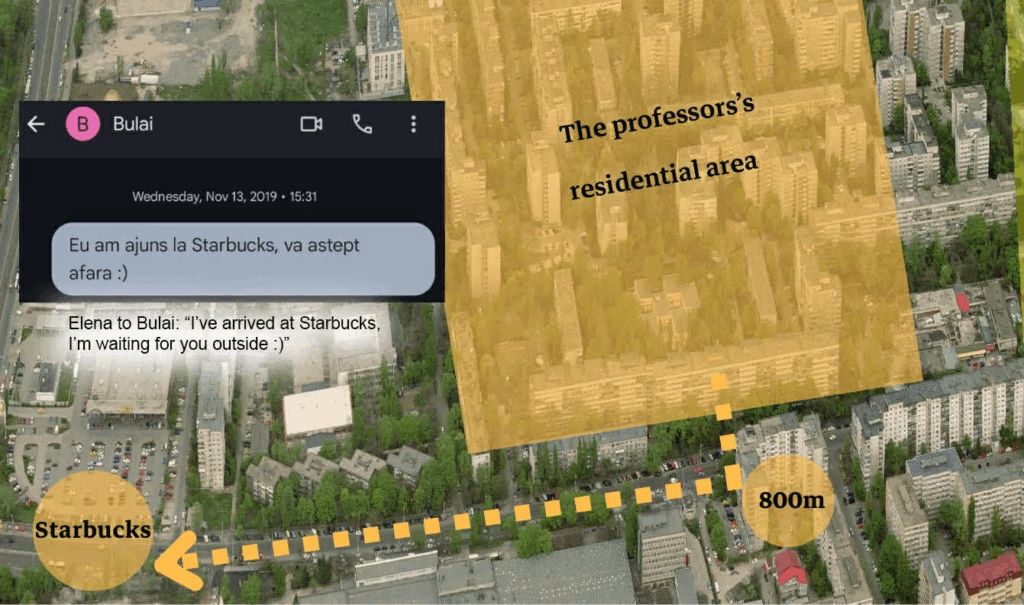
In 2019, Elena experiences the same situation on the terrace with Alfred Bulai. They meet because he was her mentor during a postdoctoral fellowship. But he asks her “if I have a boyfriend, if I want to get married“ and the whole meeting is about how “women should have children.“ She can’t answer him, “the words wouldn’t come out, I was frozen.“ She blamed herself for this for a long time.
Teodora participates in the annual internship again, “to make sure that what had happened to me wouldn’t happen to other girls.“ Bulai names her the group leader and gives her the privilege of not having to cook or wash dishes.
One evening, she has a panic attack, and Bulai takes advantage of the opportunity and touches her: “He took my hand, (…) he made me take off my shoes and felt my leg bone, asking me if I was lacking calcium (…), he rubbed my back and shoulders,“ she recounts. When asked by Snoop if he had ever touched a female student under the pretext of calming her down, Alfred Bulai confirmed that he had, but claimed that “it was not sexual in any way.“
“He was very touchy, he would do this to her legs (caress them) to help her recover,“ recalls her colleague Teodora Urse, who was present. She stayed “glued“ to Teodora Batâr for the rest of the internship, in order to protect her. Later, during a one-on-one meeting in his room, the teacher told her “that I have an enviable maternal instinct“ and “the ideal body to be a mother,“ emphasizing “that I have a few extra pounds,“ Urse recounts.
A few days later, Teodora Batâr is invited by the teacher to the gazebo in the courtyard in order to discuss her performance as a leader. He presses her head against his face and tells her that “I must be beaten, (…) that I am progressing too slowly and he needs more from me.“
“I don’t remember ever saying anything like that in my life,“ says Alfred Bulai.
The next time she is alone with him, Teodora records him.
“The Predator“
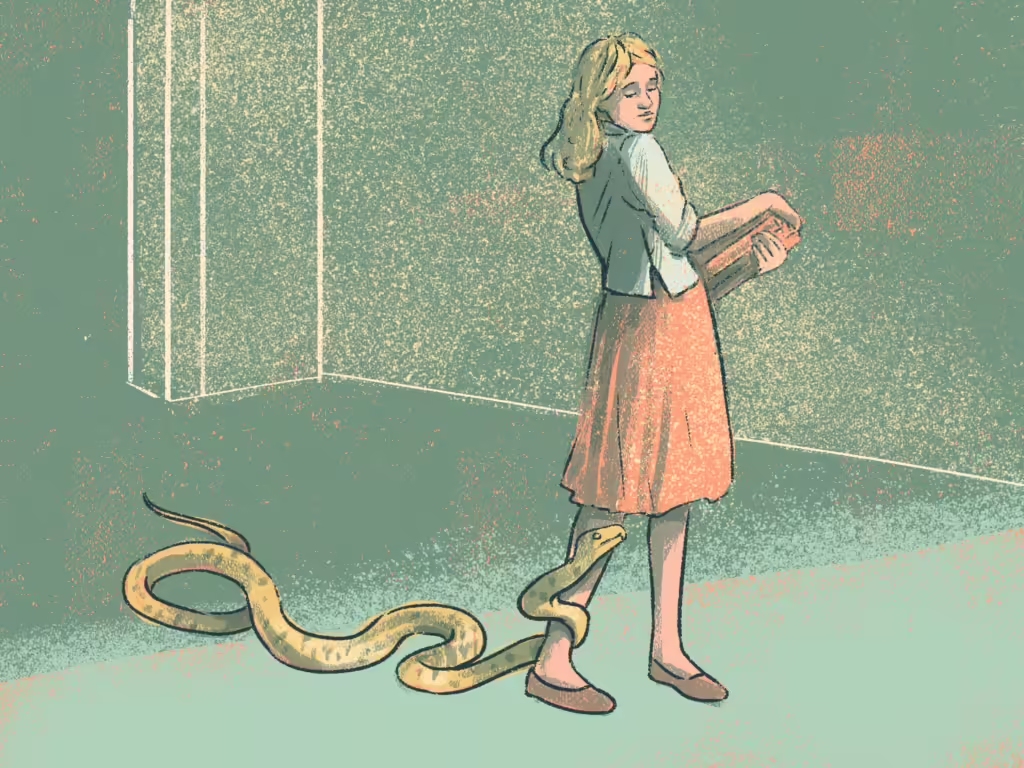
Bulai is waiting for Teodora Batâr on the bed in his room for their one-on-one meeting at the end of the 2023 internship. She goes straight to the balcony. The discussion about practice and anthropology lasts only five minutes. The professor is more “concerned“ about how many sexual relationships the student has had over time — with and without penetration —, how long she has been in a relationship or what she does after sex.
Then he makes her portrait. According to him, she has a “huge need for validation,“ which “suggests“ that she is “super sexually experienced,“ when in fact she is “naive.“ Which isn’t necessarily a bad thing, because “young girls are more wanted“ and “you’re sexier if you play innocent.“ He implies that if she doesn’t expose her body, men won’t admire her.
Then he adds:
“You’ve gotten a lot braver (since last year). Now it’s a matter of how far your courage goes, you know? If I told you to strip right now, would you do it?“
When she refuses, the teacher gives her a string of reasons why she should do it.
“The key to morality is not being chaste (…), it’s what you do to help him (the man) feel powerful, feel strong,“ says Alfred Bulai. “Only young people who lack intelligence (…) are well-behaved,“ he emphasizes.
As a woman, “you have to feel a certain freedom“, but Teodora chose to “enter the cage and throw away the key,“ even though “most women flirt sexually, in order to be validated.“
“Why be sexy just for him?“ asks the professor rhetorically. Her boyfriend would be “happy“ if he saw other men wanted to “fuck her non-stop.“
Even her parents would want her to be “very sexilicious. (…) (Your mother) went through the same kind of experiences and probably was less inhibited than you are,“ the teacher tells her.
In the end, he explains how he has “no doubt“ that she would have taken her clothes off, “it’s just that women need foreplay.“
When confronted with the statements he made while recorded, Alfred Bulai explains to Snoop: “I have no idea about this matter. What is certain is that she did not undress. There is no such requirement.“
“Predatory.“ This is how psychologist Bogdan Morar labels Alfred Bulai’s behavior.
The specialist analyzed the one hour-long recording of the conversation between the two to identify the manipulation methods used by the professor to achieve Teodora’s “submission.“ “They are subtle enough to be hard to detect, especially in the context of an unequal relationship of power and authority,“ he explains.
However, the professor applies these methods with other students, too.
Flattery and reassurance. Bulai expresses his confidence in the student and reassures her that she is valuable. This is a tactic used “to gain the victim’s trust and create an emotional dependence on the manipulator,“ says the psychologist.
• “He made me feel (…) that he was the only one who saw how special and intelligent I was. (…) No one had ever said these things to me before, and I saw him as a mentor,“ explains Victoria*, his student between 2008 and 2011.
Gender stereotypes. The professor explains to Teodora how she should behave as a woman and what she should offer a man. He is dissatisfied with her choices in relationships. “This tactic promotes discriminatory ideas about gender roles and undermines the student’s self-esteem,“ says Morar.
• Alexandra Costa recalls that she was “happy to get a passing grade“ when Alfred Bulai gave her a five out of ten for femininity during an assignment in the internship. “One can grade students for anything. There’s nothing unusual about it,“ the professor argues when questioned by Snoop on the subject.
Intimidation. The professor criticizes the student’s choices and progress in order to provoke an emotional reaction and make her more receptive to his influence. This tactic “can lead to a loss of self-confidence and feelings of anxiety or depression,“ explains the specialist.
• “I have never felt so humiliated in my life,“ says Elena Trifan about her private meetings with Bulai. “I have never felt more depressed in my life,“ says Teodora.
Confusion and uncertainty. The professor instills in the student “feelings of vulnerability and insecurity regarding her own thoughts and feelings,” in order to “impose his own ideas and objectives without encountering resistance,” Morar points out.
• “I no longer knew what was real anymore,” Victoria* says. “I would come back emotionally devastated,” Elena Trifan says about the face-to-face meetings with the professor.
“He told me I was the one seducing him“
The professor’s discourse has been perfected through years of repetition.
He has patience and keeps building these relationships with insistence.
He tries his luck with several girls at the same time and chooses his victims carefully: those “who came from the provinces,“ who were “more fragile (…), more emotional, more well-behaved,“ “emotionally weak,“ “insecure,“ “vulnerable,“ and lacking self-confidence, say several former students.
This makes them easier to manipulate and isolate from the group.
- “He said to me: (…) ‘You came to the canteen and none of your classmates made room for you at the table. (…) That means they didn’t want you there and that you’re not important to them,’“ says Victoria*, his student between 2008 and 2011.
- “He told me (…) that I chose to see him,“ and my classmates “are aware of this, gossip about me and will distance themselves from me,“ says Teodora Batâr, a student between 2021 and 2024.
Then, the professor turns these scenarios into reality. He does favors for the students in front of the class, without them asking for that or being able to refuse: he offers to drive them home, calls them during breaks to talk to them, or edits a video project for them, according to several victims.
When Victoria* tells Bulai that she doesn’t want rumors about them to start, he replies: “You think I want that? I would be everyone’s laughing matter if they found out a student was taking advantage of me,“ she recalls how Bulai made her feel like “you’re the one who initiated it.“
- “The way he talked to me always returned to the fact that (…) I took my clothes off, I came to see him, I called him,“ says Alexandra Costa.
- “He told me that I was the one seducing him,“ says Teodora.
When asked if he tells his students that they seduce him, Alfred Bulai replies: “I don’t know what you mean. I have no idea.“
“Guilt is a very effective tool for emotional manipulation,“ which causes the other person “to do something they would not normally want to do,“ explains psychologist Bogdan Morar.
Some of Bulai’s victims are overwhelmed by guilt and shame even now, although these feelings “should belong to the abuser.“ They may feel this way for a long time, until they manage to emotionally process what happened, the specialist explains.
For this reason, several victims were unable to talk to us about the abuse they suffered. One of them, who says she had sex with the professor, chose not to go into details about it. However, she allowed us to mention this to show that the professor “pushes“ boundaries all the way, she says.
When contacted by Snoop, Alfred Bulai denied ever having had a sexual relationship with any of his students.
“Everybody knew”
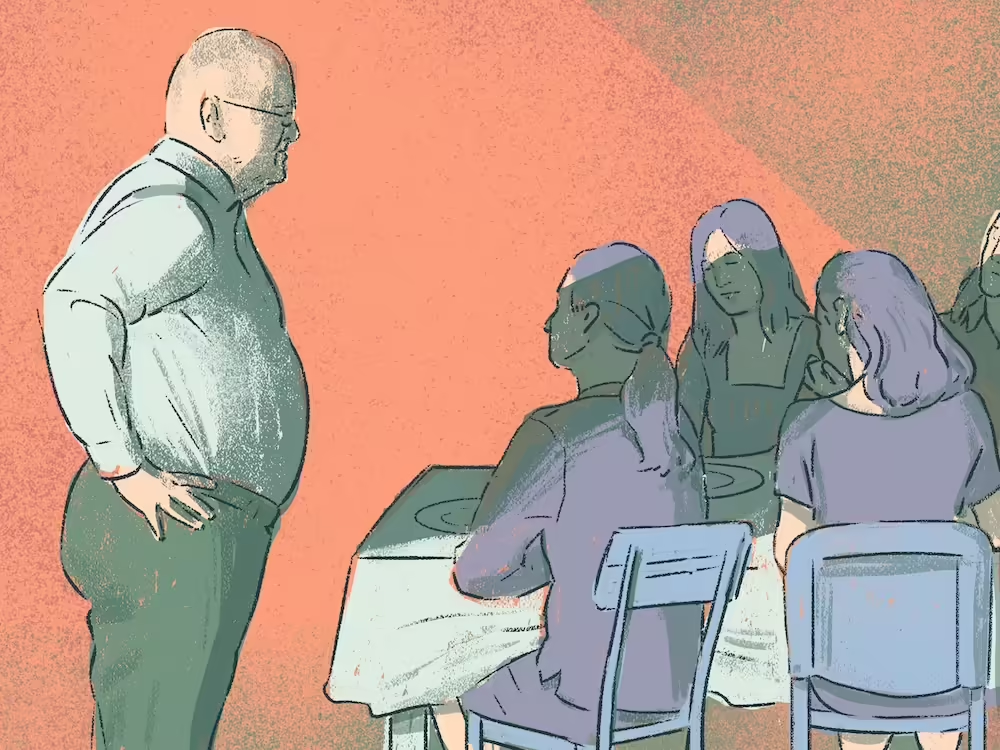
The students never complained about the professor’s behavior to the faculty administration. They did not trust that there would be any repercussions and were afraid that everything would turn against them.
Bulai “worked for the government. He has all the political connections. He talks all the time about structures, the SRI [Romanian Intelligence Service]. (…) He answered the phone, with us in the car, to the Minister [of Education]. (…) It makes you afraid, makes you think that he’s untouchable, that someone will protect him anyway“ explains Victoria*.
The fear also came from the feeling that everyone “knows, accepts (…) and appreciates him,“ she adds. “I would have been so ashamed to tell anyone, precisely because that was the feeling they gave me, that I should keep my mouth shut,“ explains Alexandra Costa.
“The students know,“ says Diana, who was Bulai’s student between 1995 and 1999 at the University of Bucharest. “There was a lot of whispering, and such a buzz in the courtyard, during cigarette breaks,“ recalls Adela Alexandru, Alfred Bulai’s student between 2015 and 2018 at SNSPA, during the school periods following the internship sessions.
There are students who fell into the professor’s trap and enjoyed his “special attention.“ Many of the people Snoop spoke to mentioned the same names over the years. It is obvious to everyone who the professor’s “favorites“ are, because he favors them in class and “puts them in the spotlight,“ says Victoria*. In addition, some of these girls inadvertently show the intimacy they share with the professor during the internship, and the students talk about it. (click for details)
Elena Trifan, a student between 2008–2011, recalls stories about how a classmate “would stay with him longer” after the evening internship sessions.
Alexandra Costa, a student between 2013–2014: “Younger colleagues told me that during an internship I didn’t attend, the professor and one of my classmates shared a room.”
Teodora Batâr, a student between 2021–2024: “During the internship, in the morning, I would look at his balcony. He would be sitting on a chair, and she (the student) would come with a towel on her head, dressed in pajamas, and sit on his lap.”
Some students are attracted to the professor’s power and authority and see the relationship as a career opportunity, explains psychologist Bogdan Morar. Others are emotionally vulnerable, and “the professor can use manipulative tactics, such as praise, validation, flattery, attention, and promises of career help,” to create a false impression of affection, the expert adds.
“The professors also know about this. (…) It’s not something you can’t see (…). And they do absolutely nothing about it (…). I think it’s absolutely awful,“ says Diana. “It seemed normal,“ emphasizes Iulia*, her classmate at the University of Bucharest in the second half of the 1990s.
Bulai was accompanied in the internships by one or two assistants, according to the students Snoop spoke to. Sometimes, another teacher was present. None of them ever said anything about the fact that Bulai was having private meetings with female students in his room.
Alexandra Costa recounts how, during one of the meetings on the terrace, when Bulai proposed a sexual relationship to her, at another table nearby there were two SNSPA professors. She was afraid “that it would affect me academically and in other ways, not just on his part.“ But the professor went over to greet his colleagues as usual, she says.
There are other SNSPA professors we tried to talk to about the professor’s behavior, but they refused to speak.
“The people who take care of you academically are also responsible, in a way, for your mental health. (…) I was a child, an extraordinary student who suddenly disappeared and no one asked why. (…) I broke down, brick by brick, in front of them, and no one asked, ‘What’s wrong with you?’“ Alexandra recalls tearfully.
“When we don’t intervene, when we don’t punish, we become accomplices,“ says psychologist Bogdan Morar.
Silence can signal to the abuser that their actions are normal and accepted. The lack of consequences encourages them to continue and develop excessive confidence in their ability to manipulate, explains the specialist.
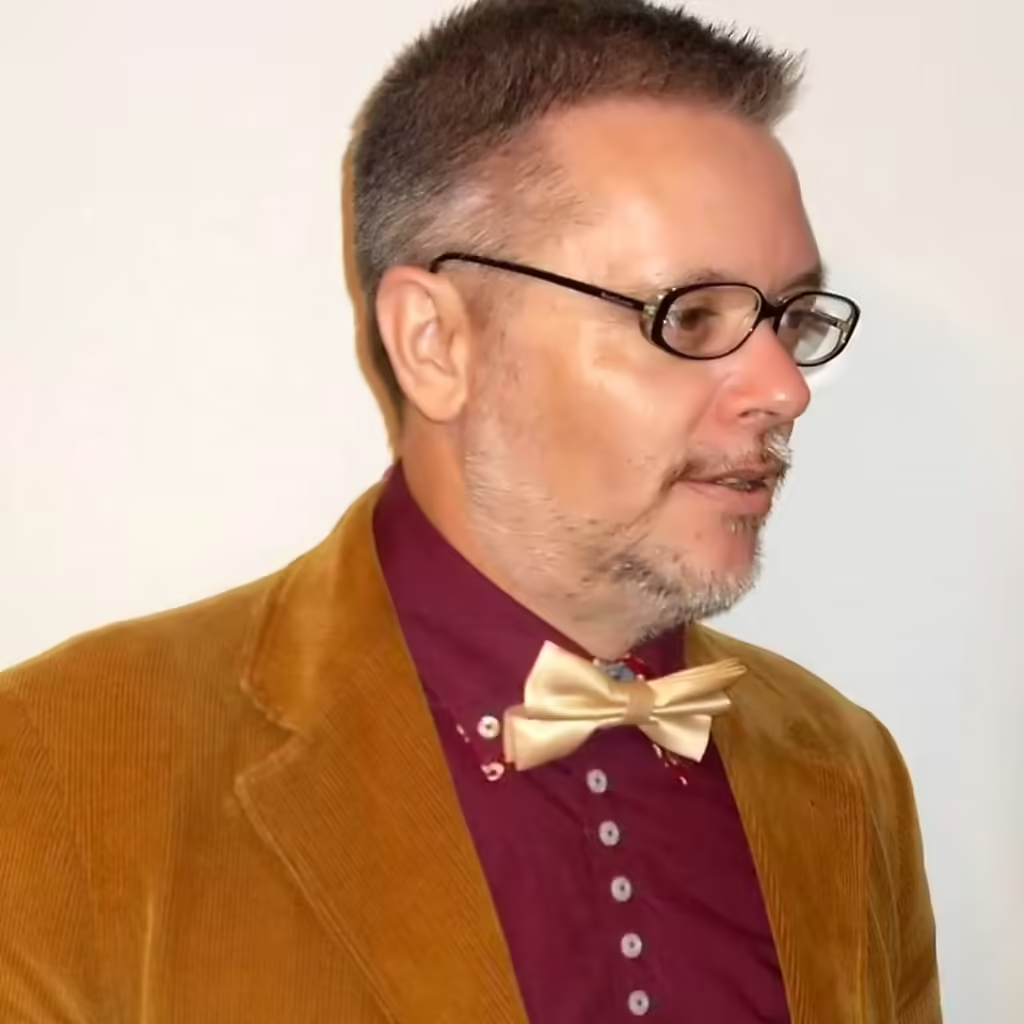
A complaint to the management “was the last thing that could be done (…). Within the faculty, there are feudal-like relationships and no one has seen the rector. (…) Only Bulai communicates (with him). And Bulai has a monopoly on what happens, at least in the Department of Sociology and the Faculty of Political Science,“ says Dan*, a recent graduate of SNSPA.
“It’s a clique of privileged people who cover for each other and give you the impression that they are untouchable,“ says Victoria*, a 2011 graduate.
As proof, the girls Snoop spoke to point to the case of professor Stanciugelu, who ended up before the Ethics Committee in 2017 after sending photos of his penis to a female student, they say. During the same period, another SNSPA student posted on Facebook how the professor kissed her by force after asking her to sleep with him. Another girl, who took private lessons with Stanciugelu for admission to SNSPA when she was 17, tells Snoop how the professor kissed her repeatedly, both at his home and in his car.
Stanciugelu was removed from his teaching position, but not from SNSPA. He was given a better-paid research role, according to former students. SNSPA did not respond to Snoop’s questions about the former professor’s current position in the faculty. The case has caused students to lose faith that anything could change.
When parents send their children to college, they expect them to “fulfill their dreams,“ says Alexandra Costa’s mother in a conversation with Snoop. Or to get an “education,“ adds Teodora Batâr’s father, who now feels his trust has been betrayed. The professor “abused his position of power (…) and did so in front of his colleagues,“ he explains. He is proud that his daughter is now speaking out and setting an example.
“This is the first time I have heard about this, and I assure you that SNSPA will act in accordance with the law, without hesitation. Such things are not acceptable in an educational institution,“ says Rector Remus Pricopie, when asked to comment.
The SNSPA Ethics Committee can take up the matter on its own initiative. It receives complaints at the Commission’s Secretariat from anyone within six months of the incident. Pricopie emphasizes that “it is important to file a formal complaint,“ otherwise cases are “complicated to investigate.“
According to the Rules of Procedure of the Ethics Committee published on the university’s website and last amended in 2016, there is a procedure for handling complaints, but it is insufficient. The university acknowledges in the Ethics Committee’s plan for the following year that it needs to be updated to better protect victims and be more effective.
Pricopie announces that, after “a long period of debate,“ an “annex to the SNSPA Charter“ is to be approved, which will provide “even more institutional tools to prevent and resolve such problems quickly and in accordance with the law.“
Currently, victims do not know who to turn to. The university’s website does not provide a contact for the Ethics Committee Secretariat, where complaints should be filed. The composition of the current Committee is not even known, given that the four student representatives listed on the website have already graduated from SNSPA.
The Ethics Council, as it is called in the SNSPA Charter published on the university’s website, receives complaints and cooperates with a specialist. Faculties appoint advisors for such issues from among students and teaching staff.
However, it is not known who they are or how they can be contacted, although “SNSPA undertakes to make public the procedures for addressing and resolving such complaints, as well as the persons designated to provide advice,“ according to the Charter.
SNSPA did not respond to Snoop’s questions by the time this article was published.
Harassment is defined in the university’s Code of Ethics, but only “abstractly“ and “vaguely,“ says Adela Alexandru, a former SNSPA student between 2015 and 2018 and currently a gender equality expert at a feminist NGO.
The SNSPA Charter. Respect and Tolerance. Sexual Harassment (click for details)
„Sexual harassment is defined as inappropriate sexual advances (including attempts at sexual corruption), requests for sexual favors, and other verbal or physical conduct of a sexual nature that are connected to the conditioning of training, evaluation, employment, promotion, or participation in university activities. Such behavior affects, through intimidation, hostility, or offense, any person’s work, academic performance, living conditions, or the environment in which activities are carried out.”
The charter “does not specify the forms that sexual harassment takes. (…) It should provide a list (of examples) and state that it is not exhaustive,“ Adela explains.
When she was a student and intern at the Filia Center (photo from her graduation in 2018), she and several colleagues collected over 600 signatures for a university policy on preventing and combating sexual harassment.

This happened a few months before the Stanciugelu scandal erupted.
The students wanted the Code to include appropriate sanctions for sexual harassment, clear measures for situations in which such cases arised, a guide for students, prevention campaigns, and free psychological counseling for the victims.
Many of the professors “seemed enthusiastic about the idea, (…) but it was just a facade,“ she recalls. Even Alfred Bulai welcomed them to his class, signed the document, and praised them in front of the students.
They struggled to submit their proposal and signatures to the Senate’s secretariat. An administrative staff member told them, “Stop, it’s like you want to change the constitution of a country,“ the activist recalls.
The Senate never invited them to discuss their initiative. It gave them a response on the status of the proposal more than a year after they submitted it, and only because Adela had taken the SNSPA to court.
Despite the scandal involving professor Stanciugelu, the SNSPA said that the proposals already existed in the Charter and Code of Ethics. “There is a very strict code, that is, a code as an ethical code should be, which also covers this aspect,“ said Rector Remus Pricopie, contacted by Snoop. In court, the university argued that it was not its responsibility to respond to Adela’s complaint because she represented an informal group, not an NGO.
In 2019, the university amended the Charter, but did not take the students’ proposals into account. The harassment chapter remained in the same form.
SNSPA’s resistance to change “has to do mainly with the completely wrong idea that if you, as a university, change your procedures on sexual harassment, you are admitting that you have this problem. And that will lead to fewer people wanting to study there,“ Adela explains.
TEXT
Illustration: Roma Gavrilă
Editor: Iulia Roșu
Fact-checking: Paula Căbescu
Contribution: Răzvan Luțac
VIDEO
Editing Ligia Popescu
Image: Andrei Oană
Sound: Ștefan Teodorescu
”The Abuse Department” is a journalistic project that monitors harassment and sexual abuse in schools, high schools, and universities across the country. If you have also experienced a situation of abuse at SNSPA or in another educational institution, write to [email protected] and fill out this form (thanks to the Balkan Investigative Reporting Network for the technological support). Your identity will be protected. The data will be used to continue the Abuse Map on a standalone website.
You can also reach out to asistentavictime.ro, the platform of the Association for Victims of Sexual Crimes.



